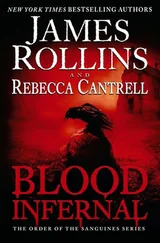“That’s my property!” Tom gasped. “Give it back!”
Shkin tossed the bracelet up in the air and caught it again. “You don’t have property anymore’ he said. “You are property unless you have papers to prove that you are a free man. But if you are who you say you are, you won’t.” He held the bracelet up and squinted at it. “HS and TN,” he read. “How touching…”
The lift bell rang again and another of Shkin’s black-clad guards stepped out. This one was just a boy, dressed up like the rest in a black uniform and a peaked black cap with a silver SHKIN logo on the front.
“Well, Fishcake?” Shkin asked him. “Do you recognize our guest?”
The boy stared at Tom. “That’s him, all right, Mr. Shkin,” he said. “I saw him on the screens when we was at Anchorage. That’s Wren’s dad.”
“How do you… ?” Tom started to ask, and then realized suddenly who this boy must be. Fishcake. That was the lad Uncle had talked about, the newbie who had kidnapped Wren! Tom knew he should feel angry with him, but he didn’t. He just felt more angry than ever with Shkin, because he could see the logo branded on the back of the boy’s thin hand. What sort of a man would do that to a child? What sort of a city would let a man like that grow rich and prosperous? He said, “Fishcake, please, is Wren all right? Was she hurt at all? Do you know who bought her?”
Fishcake was about to reply, but Shkin said, “Don’t answer him, boy.” One of the guards hit Tom again, knocking the air out of his lungs in a loud, wordless woof.
“Fishcake has learned obedience,” said Shkin. “He knows that if he disobeys me, I shall put him back in the holding cells with his friends, and they will rip him to pieces for betraying Grimsby.” He tore open Tom’s waistcoat, pulled up his shirt, and traced with one gray-gloved finger the scars that had been left by Windolene Pye’s amateur surgery. There was something like a smile on his face.
“The mayor of this city is a very irritating man, Mr. Natsworthy,” he said. “I believe that you may be able to help me expose him as a fraud and a liar. But first your daughter will help me to retrieve something he has stolen from me. Who knows—if you cooperate, I might let you both go free.” As he turned to his desk, he tossed the bracelet up into the air and caught it again. Leaning down to the brass mouthpiece of the intercom, he said, “Miss Weems, arrange a cell on the midlevels for Mr. Natsworthy, and have a bug ready to take me to the Old Steine at seven thirty. I think I shall be attending His Worship’s ball after all.”
Hester had already looked in through the front door of the pretty little tower once without seeing any sign of Tom. She had looked for him everywhere else that she could think of, hoping that he might have gone back to the Screw Worm before attempting to talk to the slavers, or circled back to the Pink Café. Now she was back outside the Pepperpot, feeling angry and faintly scared. She was sure Tom was in there, and that something bad had happened to him. The blinds had been drawn across the windows on one of the upper stories, and there was a bunch of black-overalled guards in the reception area, chatting to the snooty-looking woman there. Hester wondered if she should barge in and confront them, but she did not want to walk into the same trap as Tom.
The man outside saw her peering in again and stared, so she walked quickly past as if she were just a curious tourist and went into a coffee shop on the far side of the square, where she drank iced coffee through a straw and thought. This Shkin character must have decided to take Tom prisoner for some reason. Perhaps he thought Tom was connected with the Lost Boys. Well, that was not so big a problem. She would go and rescue him, just as Tom had come to rescue her when she had been a prisoner at Rogues’ Roost.
But how to get inside that tower? The guard at the door was already wary of her, and with all these carnival crowds about she could not just shoot her way in. Oh, poor Tom! Why had he come here alone? He should have known that he couldn’t cope on his own with people like this Nabisco Shkin.
She paid for her iced coffee and asked the waiter, “Is that Shkin’s place? The tower? It looks too small to hold many slaves.”
“It’s got hidden depths,” the waiter replied, glancing happily at the tip she put down on the table. “The cells and stuff are down below. That’s where they’re keeping all those horrible pirates.”
Hester thought again of Rogues’ Roost, and of how she had led Tom to safety through the confusion of a Lost Boy raid. Then she left the café, walking quickly, glancing down once to make sure that the gun in her belt didn’t spoil the cut of her new coat.
Chapter 26
Waiting for the moon
As the sun sank red and fat into the haze above Africa, the breeze stiffened. Brighton began to rock gently on the long, white-capped, shoreward-rolling combers. Undaunted by the heaving pavements, parades of children trooped round Ocean Boulevard with bright banners and huge moon-shaped paper lanterns, and a thousand self-styled artists held private viewings in one another’s houses.
“Keeps ’em busy, I suppose,” said Nimrod Pennyroyal, gazing down philosophically at it all from one of Cloud 9’s many observation platforms. “There are so many tenth-rate painters and performers on this city, we need a good festival every week or two to make them feel their silly lives are worthwhile.” Drifts of bubbles swirled past him, vomited into the evening sky by an art installation in Queen’s Park. The breeze brought carnival noises gusting up too: guitars and cacophoniums jangling in the streets of the historic Muesli Belt, premature fireworks banging and shrieking on the seafronts.
On the blue-green evening lawns of the Pavilion gardens, between the shadows of the cypress groves, the guests were starting to gather. All the men wore formal robes, and the women looked wonderful in ball gowns of moonlight silver and midnight blue. Paper lanterns had been strung along all the walks and between the pillars of the bandstand, where some musicians were tuning up. The Flying Ferrets had arrived, looking terribly dashing in their fleece-lined flying suits and white silk scarves, talking loudly about “archie” and “bandits” and “crates” being “ditched in the briny.” Orla Twombley, her hair lacquered into backswept wings, hung on Pennyroyal’s arm.
Drinks and snacks were being served before the dancing began, and Wren was one of the people doing the serving. She felt pretty and conspicuous in her MoonFest costume— baggy trousers and a long tunic made from some floaty, silvery fabric that she could not name—but the guests seemed not to notice her at all; they were interested only in the tray she carried. As she wove her way through the gathering crowds, hands reached out without a thank-you or a by-your-leave to snatch at her cargo of drinks and canapés.
Wren didn’t mind. She was still tired and uneasy after the events of the night before. All day there had been an odd atmosphere in the Pavilion, with militiamen coming and going and security being tightened up. The other slave girls kept coming to ask Wren if she had really seen the body, and had there been ever so much blood? To make matters worse,
Mrs. Pennyroyal smiled knowingly at Wren every time she saw her, and kept finding excuses to send her into rooms where Theo Ngoni was, or Theo into rooms where Wren was, as if she hoped someone would write an opera about them one day and there would be a part for a soprano of a certain age as Boo-Boo Pennyroyal, the thoughtful mistress who made their love possible.
Strangely, all this kindness made Wren like Boo-Boo less: It was one thing to keep slaves, but quite another to try to arrange their love affairs. She felt that the mayoress was pairing her and Theo off like a couple of prize poodles.
Читать дальше












